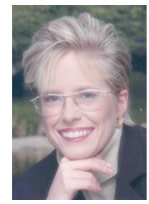|
Interest Rates Linked to
Investment Snafus
by Karen De Coster
In a recent report on CNBC’s Power Lunch, anchor Bill Griffeth investigated arguments from economists who adhere to the notion that the loose monetary policies of the Federal Reserve, along with its lowering of interest rates, may be partly responsible for bringing about the recessionary aspects of business cycles. In particular, Griffeth examined one group of radical, anti-interventionist-type economists known as the Austrian School. Those adhering to the canon of this school have faith in the ability of actors on the free market to engage in producing and selling without hindrance from regulatory oversight bodies or a central bank. Leading members of the old Austrian School, such as Friedrich Hayek and Ludwig von Mises, have pioneered distinctive theories of the trade cycle, concepts aimed at explaining the rollercoaster effects that the Fed’s manipulation of money has on the economy. According to modern Austrians who have built upon their predecessors, Federal Reserve credit expansion begins a process that induces inflation, lowers interest rates, and creates unsustainable growth in the economy. As the Fed’s expanded money supply enters into the economy, real purchasing power, and hence saving, is lowered. This change in saving and consumption patterns is said to lead entrepreneurs toward making investments based on flawed knowledge of economic realities. Economist Paul Krugman, whose scrutiny is widely regarded by government and businesses alike, says “this is an overinvestment theory that the Austrians call “malinvestment”, leading people to believe that it is possible for entrepreneurs with MBAs and PhDs to be fooled or enticed by lower interest rates to finance the acquisition of business capital. This bizarre malinvestment notion entails two erroneous notions about business decision makers: first, it implies they are concerned with obtaining lower costs of borrowing money, and second, it implies they are not entirely aware of the supply and demand for money and its related consequences.” Krugman adds, “Surely it doesn’t take a degree in math from MIT to understand a few core quantitative equations and models, and act accordingly based on them. If businessmen cannot grasp the simplest aspects of monetary disequilibrium theory, maybe they shouldn’t be in business.” Krugman says the Austrian economists refer to the “unsustainable boom” concept as one that essentially says economic growth cannot be permanently prolonged via the monetary policy procedures of Alan Greenspan. “This whole notion is clearly political,” says Krugman. “The purpose is to discredit Greenspan. They blame everything on government and the central bank, when all entrepreneurs have to do is develop reasonable expectations as to where they are at in the business cycle, and act accordingly. I mean, why join in on the boom if you know that it’s not sustainable? As of yet, the Austrians have yet to cover their butts in regards to this particular hypothesis.” Roger Garrison, a noted economist in the Austrian school, recently published Time and Money: The Macroeconomics of Capital Structure, where he distinguishes sustainable and unsustainable growth, and he basically lets on that all roads of blame lead to central banking policies. When asked to comment on Garrison’s work, Krugman stated, “Look, the Austrians are not even from Austria, nor have any of these new guys produced any known connections to Austria, so basically, they are a fraud. Besides, Professor Garrison doesn’t even acknowledge that an economy can manufacture capital with a printing press, and in fact, he dreams up the notion that capital must be created through legitimate means such as investments being financed through available savings.” Recent Nobel laureate Vernon Smith, a noted free market economist, has said he’d have to test the theory of the trade cycle in controlled settings, with real subjects, in order to assess the validity of either Garrison’s or Krugman’s suppositions. “I prefer to do experiments with this sort of thing,” says Smith. “In fact, I always liked science better than math.” Karen De Coster HOME
|
 New
York: In a bit of astounding news from Wall Street, it has been
alleged that artificially lowered interest rates can have debilitating
effects on entrepreneurial investment.
New
York: In a bit of astounding news from Wall Street, it has been
alleged that artificially lowered interest rates can have debilitating
effects on entrepreneurial investment.